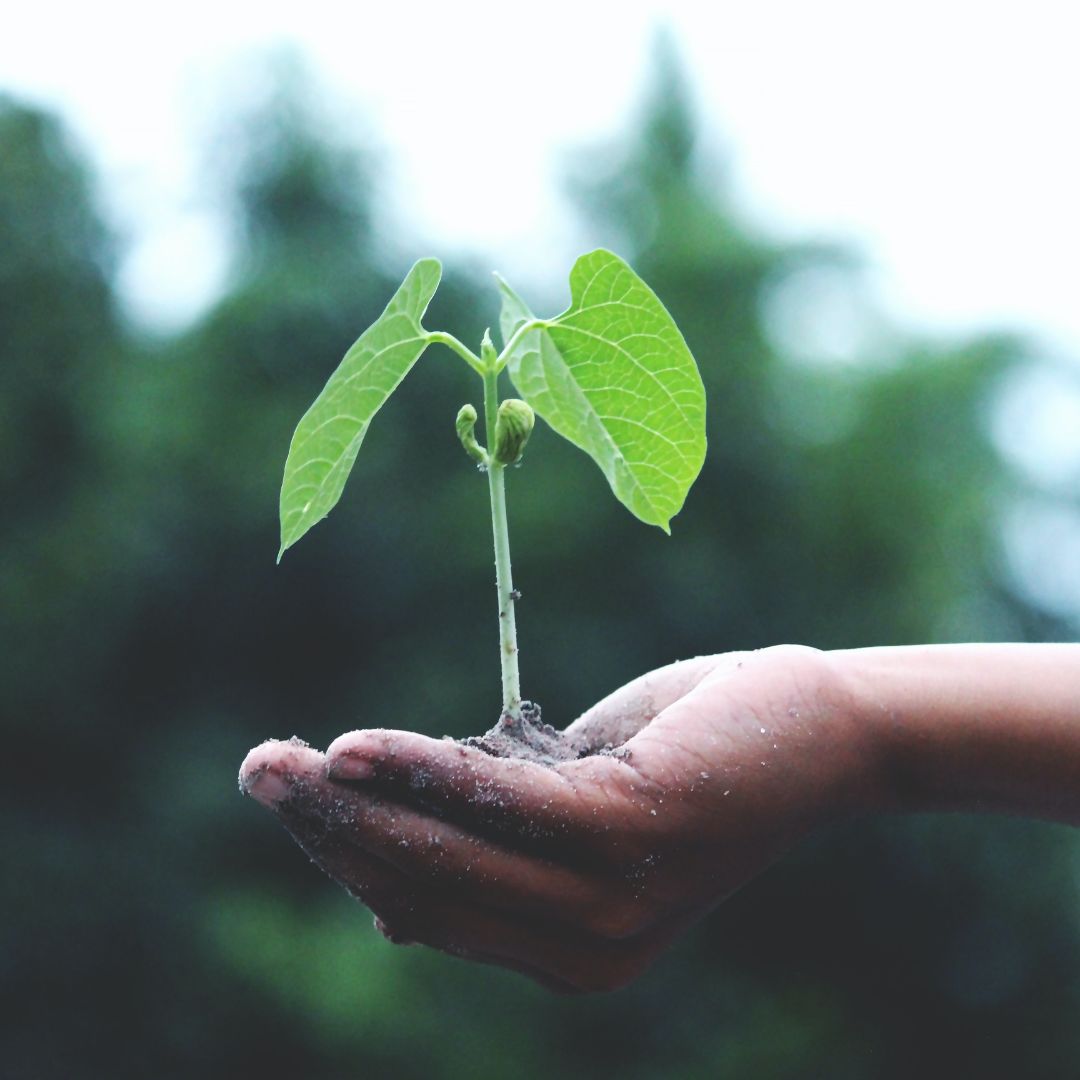
How to Shop Sustainably
Share

6 simple tips to help you make sustainable choices, from materials to packaging - and everything in between
Over the last couple of years we've learnt a lot about how to make ethical and sustainable choices here at Good Things. We champion sustainable gifts, toys and homeware that are good for people and planet, and send them to our customers in eco-friendly packaging.
But what makes a product sustainable and what are the questions you should ask so you can avoid greenwashing? Discover our top tips so you can shop sustainably.
Explore hundreds of inspiring ethical and sustainable products that support charities, empower people and protect the planet at Good Things.
1. Take your time

Sustainability takes time. First consider whether you actually need to buy something - could you borrow, swap or find something second-hand? If you are going to buy, take time to consider your options and consider the tips below to make a sustainable choice.
The way we consume and dispose of our planet's resources at the moment simply isn't sustainable. All of us are going to have to learn to buy less and if we do buy, to choose long-lasting products that we can look after, repair and pass on for someone else to use if we no longer need them.
When we first launched Good Things we came across the term "legacy products" - durable products that will last many decades and be passed from generation to generation. This is a good concept to keep in mind - will it stand the test of time and will you still need or enjoy it years from now?
On the subject of time, if you're just beginning to make changes it's sensible to go slow and make regular little changes to what you buy, rather than trying to change everything at once. If you do this it's more likely you'll keep it up. Try starting in one area like your fridge or bathroom cupboard.
2. What's It Made From?

Let's talk materials. We know plastic is bad, but don't forget this includes nylon, polyester and some paper products like disposable coffee cups which can be lined with plastic.
If you can, choose products made from recycled materials. Why is this such a planet-friendly option? Firstly because reusing waste materials prevents them from going to landfill or causing pollution, and secondly because it means we can reuse materials that are already in circulation without depleting the planet's resources any further. We love Green Toys, hard-wearing toys made from recycled milk bottles, and VENT for Change, who make beautiful stationery from waste materials like CD covers and coffee cups!
According to the UN, currently 75% of global material consumption is based on non-renewable resources. Seeking out alternative materials like wood, cotton or other natural fibres can help reduce emissions, preserve resources, and wood can even help with climate change mitigation by storing carbon. These materials will rot down naturally meaning they cause less of an impact at the end of a product's life. Look out for information about the inks, glues and paints used as these can be toxic or harmful for wildlife.
If you're food shopping try to eat mainly plant-based, buy seasonal fruit and veg, support small and local suppliers, and try to buy organic products. You can make a big impact by reducing your food waste. In the UK 50% of the food that gets thrown away comes from our homes - that's £700 worth of food per family per year in the UK! That's not just a waste of food, it's a waste of huge amounts of resources - globally food waste accounts for 8 to 10% of global emissions.
3. How Was It Sourced and Made?

So you've found a product and perhaps it's made from something like wood or cotton. That's fine, right? Sorry, you're not done yet.
Check how the materials were sourced and how the product was made. Wood must be sustainably sourced otherwise you might be supporting deforestation and the destruction of habitats. Look for FSC or PEFC certification on wooden products so you know the forests are managed responsibly.
Most cotton products use huge amounts of energy, water, pesticides and fertilizers. Did you know it takes over 1,000 gallons of water to produce one t-shirt? GOTS certified cotton is organic and means the cotton was produced following strict environmental and social criteria.
Was your product mass produced? Look for information about the processes involved and find out whether the manufacturer has made efforts to reduce the resources required to make it - was it manufactured using renewable energy?
4. Who Made It?

While buying locally is a great option, it's not always feasible. UK-grown coffee or cotton? Nope. Buying sustainably is about understanding we're an interconnected global community.
Choosing to buy products that provide fair wages to the people that make them is one way you can give someone a hand up. While it's inevitable these products will have travelled further to reach you, you'll be supporting sustainable practices and providing opportunities for people to improve their lives. Fair Trade enterprises must put people and planet first, adhering to the Fair Trade principles, one of which is respect for the environment.
Many Fair Trade enterprises use traditional tools and equipment and make products slowly using traditional techniques - like Neema Crafts (above) where products are made using treadle sewing machines. Find out more about Fair Trade and why it matters.
5. How Is It Packaged?

It's all very well carefully choosing a product, but all those good intentions can be undone by a product's packaging. Most eco-friendly shops will let you know what their products are packed in (find out what we use here) but it's worth checking as plastic packaging is the single biggest source of plastic waste. Wrappers and bags that are likely to be removed and thrown away almost immediately will take hundreds of years to degrade.
Zero waste shops are popping up all over the UK and make eco friendly shopping for food and essentials much easier.
At Good Things we try to ensure as much of our packaging as possible comes from recycled sources, so we're reusing waste materials already in circulation. We also make sure everything we use is recyclable or compostable - but we first encourage you to reuse what you can!
6. How will it reach you?

Walking to a local shop to pick up what you need is great but it's not practical for everyone.
On average shopping online is greener than travelling to the shops as delivery vans drop off hundreds of parcels on one local round. But try to bundle orders and beware the lure of speedy delivery and free returns as these can greatly increase the environmental impact of your online shop.
Developments are also being made in green delivery options with electric vehicles, drones and bicycles good options. We'd love to see all our good things being delivered by bike one day soon!
For now at Good Things we offset the carbon used to deliver your order to your home by protecting areas of the Jarí Para Forest Conservation Project in the Amazon Rainforest.
How do you make sustainable choices? We'd love to know what you think, comment below.
You might also like:
At Good Things you’ll find inspiring ethical and sustainable gifts that support charities, empower people and protect our planet. Discover gifts for all ages and inspiring ideas like cards that plant trees, handmade cushions empowering people in Tanzania and eco toys made from recycled milk bottles. Have a look at our collections.
Check out more Little Ways to Love the Planet or sign up to have Good Things popped into your inbox every weekend.







